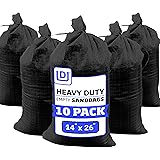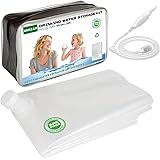Understanding the Unique Needs of Individuals with Special Needs
Identifying Specific Requirements
Every individual with special needs has their unique set of requirements, and understanding these is the first step in stockpiling the right medical supplies. It’s essential to assess what your loved one requires daily, weekly, or in emergencies. Take time to go through their current medical supplies and consult with healthcare providers to figure out the basics—like medications, devices, or everyday needs.
As a caregiver or family member, I often jot down the specific items that are crucial for my loved ones. This detailed list serves as my go-to when purchasing supplies. You’d be surprised how easy it is to forget smaller items, like specialized bandages or nutritional supplements.
It helps to break it down into categories: medications, hygiene products, assistive devices, and any other special equipment. Knowing exactly what’s needed takes a ton of stress off your shoulders and ensures that you’re well-prepared.
Consulting Healthcare Professionals
Next up, I wholeheartedly recommend engaging with healthcare professionals. They’re invaluable when it comes to gaining insights about the necessary supplies. Whether it’s doctors, nurses, or therapists, these folks can provide recommendations tailored to specific conditions.
During my conversations with these experts, I’ve learned about alternatives and best practices. They often suggest brands or suppliers that have proven reliability. Don’t get stuck in the mindset of doing it alone—an expert’s voice can save you time and money in the long run!
Moreover, professionals can help you anticipate future needs. Just because your loved one is stable now doesn’t mean adjustments won’t be necessary down the line. Having that foresight is key when stockpiling medical supplies.
Creating an Inventory System
Once you’ve got a solid understanding of needs, creating an inventory system can seriously streamline your efforts. I can’t stress enough how vital it is to know what you have on hand and what’s running low. Simple spreadsheets or even apps can do wonders to keep track of your supplies.
When designing your inventory, remember to include details like expiration dates for medications and any storage requirements. As someone who’s dealt with expired products because of oversight, trust me—keeping tabs on this stuff is crucial!
== > What if ... Get a FREE Subscription to PREPARE
Reviewing your inventory regularly allows you to replenish supplies before you run out. It’s amazing how chaotic things can get if you’re scrambling last minute. Seriously, no one wants to be chasing down a prescription in an emergency.
Setting a Budget for Medical Supplies
Assessing Costs
We all know medical supplies can rack up some serious bills, especially when you’re catering to special needs. I’ve found that assessing costs upfront is the best way to start budgeting. Sit down and write out the estimated costs for what you realistically need for a couple of months.
Using past bills or invoices as a guide is super helpful. This can paint a clearer picture of how much you should set aside each month for supplies. Don’t underestimate the power of budgeting—it’ll save you a headache later on!
Make sure to account for both unexpected needs and regular purchases when calculating your total cost. A little cushion in your budget can go a long way, trust me on this one!
Looking for Discounts and Deals
Now that you have everything figured out, it’s time to stretch that budget! There are countless ways to snag discounts on medical supplies. I’ve become quite the coupon queen. From online promo codes to local health fairs, there’s always something to take advantage of.
Don’t forget to check with local pharmacies; they sometimes have loyalty programs or can price match. It’s worth it to ask, right? I’ve saved a good chunk of cash just by simply inquiring!
Also, consider bulk purchasing for items needed frequently. While it might seem like a bigger upfront cost, the long-term savings can be fantastic. Plus, stockpiling on deals means you’re prepared without breaking the bank!
Staying within Your Budget
Staying within your budget may seem daunting, but it becomes second nature with a bit of practice. Once I get my monthly supply list set, I try to stick to it religiously. If I come across an unplanned expense, I reassess my budget for the remainder of the month.
Get Preparedness and Self-Reliance Tips. Subscribe Now!
Cuts can be made and areas adjusted without putting anyone’s health at risk too much; it’s all about prioritizing what’s desperately needed versus what can wait a bit. Having awareness and being disciplined plays a key role here.
And remember, it’s okay to ask for help. Donations sometimes come from unexpected places, be it friends, family, or local organizations. Don’t shy away from reaching out—it may lead to opportunities for assistance!
Preparing for Emergencies
Creating an Emergency Supply Kit
We can’t predict emergencies, but we sure can prepare for them! An emergency supply kit specific to medical needs should be a priority. I recommend gathering all essential items into a single, easily accessible bag or container so it’s ready at a moment’s notice.
This kit could include critical medications, emergency contact numbers, and even basic first aid supplies. Be thorough when considering what your loved one might need during a crisis—no detail is too small!
Lastly, make sure that anyone caring for your loved one knows where the kit is! I’ve made it a habit to brief all caregivers and family members, just in case they need to step in. Preparedness is the name of the game!
Regularly Updating Your Supplies
As time goes on, needs can change. That’s why I make it a point to review our emergency supply kit regularly. This includes checking expiration dates, replacing old items, and confirming that any new medical needs are addressed.
I usually mark my calendar with reminders to do these check-ups every few months. It’s a low-key but essential way to ensure our supplies are always at the ready. Trust me; it pays off in peace of mind.
Another pro tip? Keeping copies of important documents like medical records in your kit can save valuable time in an emergency. Awareness and preparation put me light-years ahead of any panic!
Training and Preparedness
Finally, I can’t stress enough how beneficial it is to be trained in using your medical supplies effectively. Whether it’s the admin of medications, the use of devices, or emergency response techniques, being knowledgeable can significantly impact situations.
Consider attending workshops or finding online tutorials tailored to your specific needs. I’ve found that even small amounts of training can build confidence in handling crises. Plus, you’ll feel empowered knowing you can manage care in tough situations.
Including other family members in training can be a game-changer, too! It spreads understanding and capability, ensuring everyone knows how to step in if needed. That kind of teamwork is invaluable!
Frequently Asked Questions
What are the essential supplies I should stockpile?
The essentials usually include medications, hygiene products, first aid supplies, and any special equipment specific to the individual’s needs. Don’t forget to consult with healthcare providers to tailor your list!
How often should I review my medical supplies?
I recommend reviewing your supplies every few months. This regular check helps ensure everything is in order, up-to-date, and available for emergencies.
Are there financial assistance programs available?
Yes! There are many local and national organizations that provide financial assistance for medical supplies. A little research can lead you to some helpful resources.
How can I engage my community in helping with supplies?
Donating drives, local partnerships, or simply spreading the word on social media are great ways to get your community involved and aware of the needs.
What’s the best way to store medical supplies?
Keep them in a cool, dry place. Always check for specific storage instructions on items as some may require refrigeration or other conditions to maintain efficacy.






